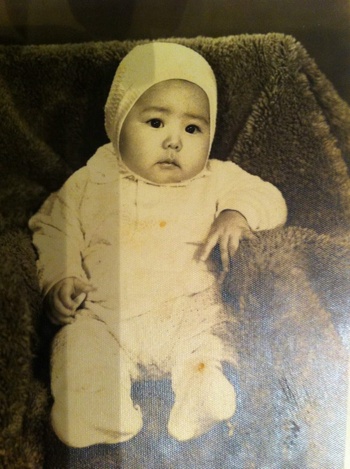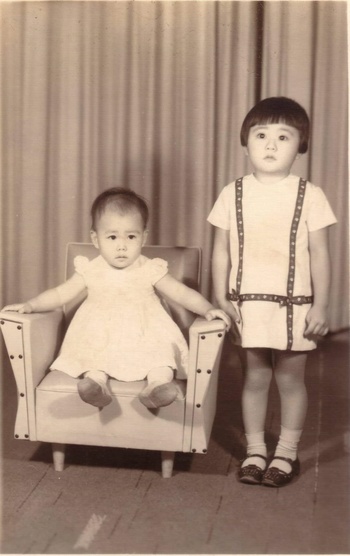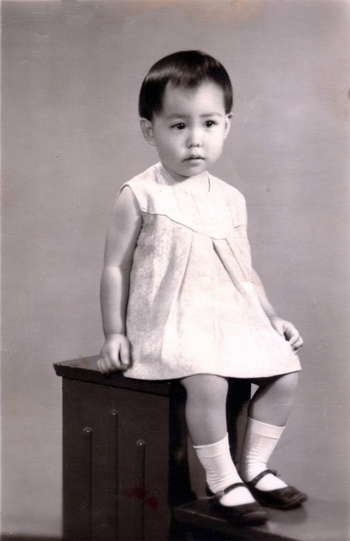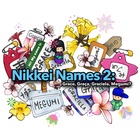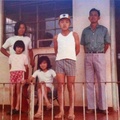Hiromi-chan, iiiko, right! – that’s how Mrs. Takeko, also known as Mrs. Carmen, rocked the baby while humming Japanese children’s songs. Miwa-chan, a year and a half older, looked at this miniature with interest.
Hiromi, a carefully chosen name, means broad beauty. What were my parents' dreams and expectations for me when they chose this name? They certainly thought of good things, they wanted a being who would come into the world to make it better. What is the function of beauty? To bring joy to hearts.
My parents, still young and full of dreams and with strong ties to the Land of the Rising Sun, chose names for their three children: Eiji, Miwa and Hiromi. For Eiji, they expected success and prosperity; for Miwa, with her endless red cheeks, that her beauty and harmony would always be a source of peace and joy wherever she went. My parents raised us to be a blessing and not a curse. After so many years, I see that they were successful. I say this not with the intention of considering ourselves superior to others, but because we strive to be salt and light on earth.
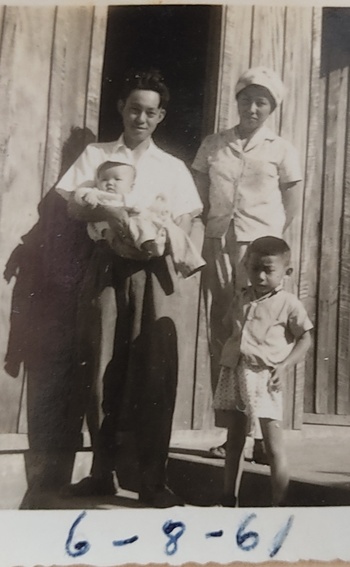
“Hiro-chan” – that’s what my father called me, in a loving way. “ Hiro-chan, coffee plantation no hana mini ikooka?” (Hiro-chan, shall we go see the flowers in the coffee plantation?)
“Hirooooomiii” – it was my cousins calling me to play, right there at the gate of the house. “Hirooomiiii!” – Tiredness won and turned into “Hiro”, then “Hi”.
Hi would happily respond promptly after her mother's permission, because there were times when we needed to study. We would run around the yard without coffee, play tag, soccer, a game of pseudo-tennis, hide-and-seek among the coffee trees, and whatever else came to mind. With her cousins, we also played house games .
“Hey Hiro, let’s jump rope!”
“Hiro, let’s play dodgeball!”
“Hey Hiro, hey Hi, let’s play school!” – that was my sister Miwa, and she was always the teacher, with her neat little letters! Beauty and harmony were my playmates during the slow hours of the hot days in that corner of Alta Paulista.
After a while of my life, my mother and sister taught me that I had another name: “Edna, Edna, É-di-na”. I learned that Miwa was Fátima and I was Edna.
I started going to school and became known as “Edna” among people outside my family. The Issei called me “Hiromi- san ” out of respect.
“ Okaachan , how was the name Edna chosen?” I asked my mother.
“I was holding you in my arms thinking about what Brazilian name I would give you and I heard someone outside calling: Ednaaaaa, Ednaaaaa! ... and that's how it was!”
To this day I do not identify with the name Edna, which to me sounds like a temporary name, despite having a Hebrew origin and a good meaning (delight, satisfaction, joy). I feel like it is not really me.
The name Hiromi speaks more about me, my ancestry, my experience and identity, evoking cozy and happy times, of ignorance of the evil that surrounds the world.
The surname refers to Japanese ancestry, I imagine what my ancestors were like and how they lived in Japan in the past.
I asked my father one day:
“ Otoochan, what is the meaning of the surname Ogihara?”
“It means grass field, bush. Just remember stud farms” – my father replied.
A quick search on the internet now shows that it means “field of Miscanthus sacchariflorus”, a plant with flowers similar to sugar cane. Reflecting on the meaning, I found it very poetic and thought about the truth behind it: we humans are like grass in the field in fragility and ephemerality and this awareness makes us humble.
Finally, Cardoso came with the wedding. Cardoso means “full of thistles”. A surname of Portuguese origin that is common in Brazil. Thistles are small weeds (herbs) whose beautiful flowers range from bright pink to pink with shades of lilac. Interestingly, it matches Ogihara, because it also reinforces the idea of my fragility and transience, but all of this also reminds me that I am carefully cared for by our Creator, because if He dresses the grasses of the field very well, which bloom in the morning and have already fallen by the afternoon, how much more so for me, or for us, who are more precious in His eyes!
© 2024 Edna Ogihara
Nima-kai Favorites
Each article submitted to this Nikkei Chronicles special series was eligible for selection as the community favorite. Thank you to everyone who voted!


